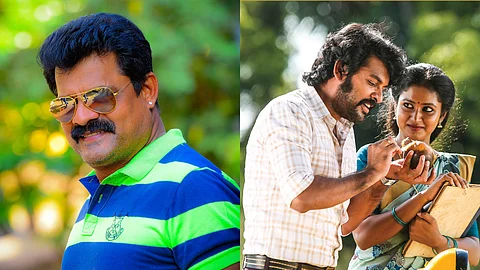

Actor Bose Venkat makes a comeback as a director with the latest social reform drama SIR, which stars Vemal and Saravanan in the lead roles. His personal experiences as an auto driver in Chennai partly influenced his directorial debut Kanni Maadam (2020), which explores topics such as honour killing and casteism. In an exclusive conversation with CE, Venkat says that his sophomore directorial, SIR also comes from a place of truth. “Every film has a truth of its own,” says Venkat. He goes on to add, “There are real-life influences for virtually everything in the film, whether it be the mannerisms of the hero (Vemal), a teacher with yellow clothing and a yellow bicycle (Saravanan), or a village that fights to prevent access to education for its other inhabitants.”
SIR, which stars Vemal as a youngster replacing his retiring father as a teacher at the village school, explores the importance of education through the lens of caste and religion. One of the central themes of the film is about whether a teacher can bring positive change in a village with rampant corruption and religious extremism. Talking about the practicality of this aspect in real life, Venkat says, “It is possible for a commoner to have such an impact in society. They act as the catalyst for any revolution, not a powerful person. Even Hilter was a foot soldier before he became a powerful figure. Although I do not align with his ideologies, he had it in him to pull people in. This influence is what you need to win any war.”
SIR has a milieu characteristic of India before and after Independence, including the 1940s, 1960s, and 1980s. Venkat himself says, “Bharathiraja films of the 80s serve as reference points for the film.” Therefore, it has vintage costumes and hairstyles, as well as old-fashioned sensibilities, including some that today’s audiences might object to, on the grounds of political correctness. However, a resolute Venkat expresses his confidence in the audience’s ability to connect with those portions as well. “It is true that audiences today have become more perceptive when it comes to such matters. However, we have discussed all those angles during the scripting process. Our film has a renowned writer such as Suguna Diwakar. He would often say, ‘There is this Jayakanthan short story with some elements that are not essential to the main plot, yet they make it more interesting.’”
There are also moments in SIR reminiscent of Kantara. It is an observation that Venkat concurs with, but he also asserts that the religious symbolism in both films has subtle nuances. “After watching Kantara, I was shocked to find out that it is similar in many regards to SIR. But, there is also an interesting correlation between both films. In Kantara, a hero is portrayed as a God who deals with normal, corrupt folk. On the other hand, my film tells that God is the hero and he handles religious extremists.”
Venkat’s film also discusses the lack of easy access to education as well as the way in which teachers treat schoolkids and vice versa. The film contains a scene where a child serves tea to his teacher, and many sequences where the latter punishes him with a stick for their mischief. “I have chosen to make a raw, bold film that tells its story transparently,” says Venkat. Explaining his choice, the director adds, “Kids in government schools tend to be mischievous. Their fathers and grandfathers did not have enough access to education. But the little access they had is the reason why the kids get more of it, and when they misuse it, it is important to enlighten them what education was like until the 1980s through cinema.”
That said, Venkat is quick to note that he lacks similar liberty while deciding to be part of such message-centric dramas. “Sometimes, I have to play a negative character in a film emerging from someone else’s imagination. But then again, I will not do films that promote ideologies I don't agree with,” he signs off.